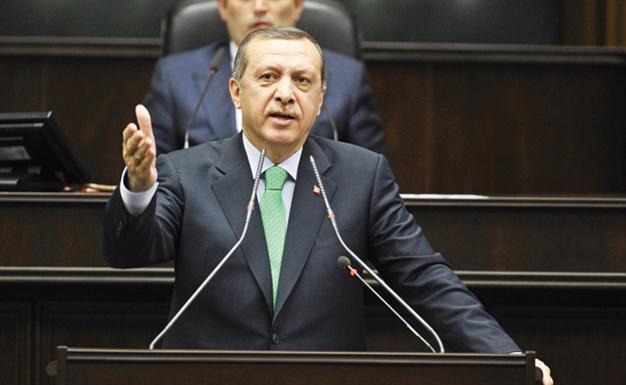Prime minister fine-tunes draft of education reform
ANKARA - Hürriyet Daily News

With his gov’t under fire over the education bill, PM Erdoğan makes minor changes to the draft. AA photo
Turkey’s prime minister and his party have fine-tuned a controversial draft education bill following opposition anger, agreeing to present students with homeschooling options after eight compulsory years in school, rather than four.With the government under fire over the bill, Prime Minister Recep Tayyip Erdoğan announced that students would be required to attend classes at school for eight years before being able to choose home study in the last four years of what the government is describing as 12 years of compulsory education.
The prime minister, however, said students would still be allowed to choose vocational schools after four years of basic education, another point that has been harshly criticized.
In remarks to a closed session of the Justice and Development Party’s (AKP) parliamentary group meeting, Education Minister Ömer Dinçer said the change did not amount to a step back since it was already among the alternatives they had considered, sources told the Hürriyet Daily News.
Erdoğan singled out the Turkish Industry & Business Association (TÜSİAD) as his main target in lashing out at opponents of the bill. He rejected accusations that the planned reform would undermine the schooling of girls, pointing at the incentives his government had so far provided to boost their education.
“Mind your own business and don’t raise barriers for the education of Anatolia’s children,” Erdoğan said, addressing TÜSİAD.
Critics have said the homeschooling option would allow conservative parents to confine girls at home or send them instead to Quranic courses. They also argue that 10- or 11-year-olds are too young to be directed toward vocational schools, adding that the measure would encourage child labor.
The bill would allow students to begin attending imam-hatip religious schools, which fall under the vocational category, at a younger age. Such schools currently have a high-school status, the legacy of the so-called “Feb. 28 Process” of 1997, when the military forced out Turkey’s first Islamist-led government and brought in measures curbing Islamic education.
The new system would make up for the “heavy damage” caused by the eight-year uninterrupted schooling introduced by the Feb. 28 Process and provide a well-trained work force for industry, Erdoğan said.
TÜSİAD snubbed
The draft was on the agenda of a sub-panel of Parliament’s Education Commission yesterday as lawmakers listened to the views of civic groups and trade unions. TÜSİAD was not invited and instead sent a two-page written opinion, in which it chided the AKP for failing to ensure “an inclusive and comprehensive debate” on the issue. It reiterated concerns over the schooling of girls, and added that students in Western countries were asked to choose vocational programs no earlier than the age of 16.
The Eğitim-İş union of teachers also argued that compulsory education should span 13 years, including pre-school.
Opposition objections
Republican People’s Party (CHP) leader Kemal Kılıçdaroğlu congratulated TÜSİAD for its “courage” in speaking out and urged mothers to mobilize against the bill. “The future of your children is being stolen,” he said.
Selahattin Demirtaş, the co-chair of the Peace and Democracy Party (BDP), said misgivings over religious education and the schooling of girls was only one side of the problem. “They are planning to raise educated modern slaves, a cheap labor force.”
Meanwhile, Nationalist Movement Party (MHP) leader Devlet Bahçeli said the AKP had turned the education system into a “scratch pad.”
















